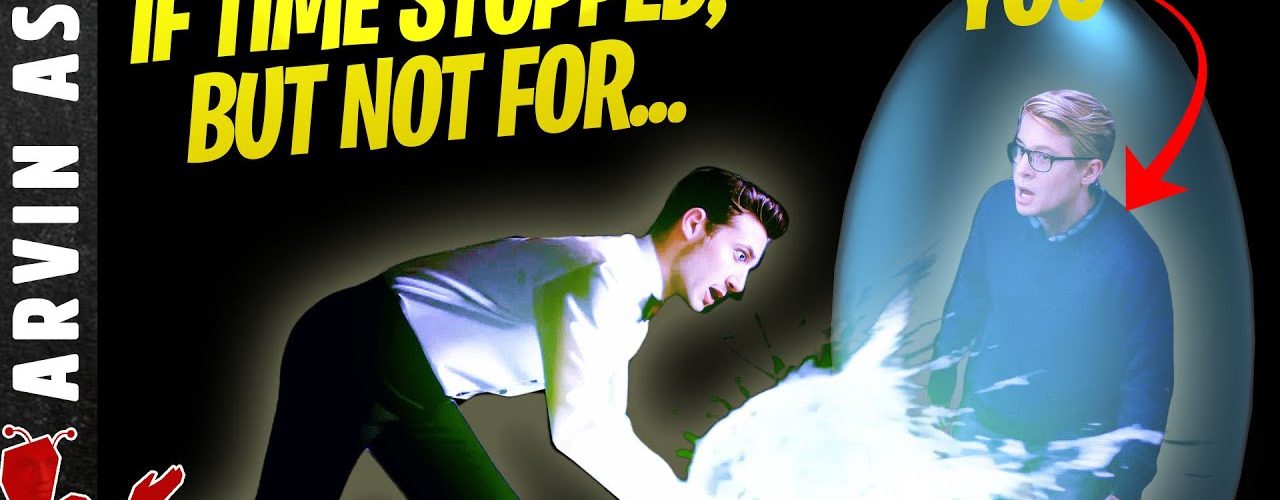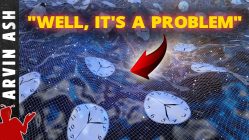What if time stopped? What would happen? What if we could stop time? Would it be like the movies? You might be shocked to learn the reality of what would happen if time stopped.
The speed of the ticks on a clock has nothing to do with our perception of that speed. What if time stopped everywhere in the universe? It would mean nothing because you would have no way of knowing that it stopped. All the processes in your brain would stop. There would be no difference because the only way we know whether anything has changed is if there is some time that has passed. Time stopping everywhere wouldn’t leave a trace. In time stopped right now and restarted again, you would never know.
What would happen if time stopped everywhere except for you? what would you see? You would quickly realize that you can’t breathe because the air molecules around you would have stopped moving. So whatever you see around you would last no more than the amount of time you could hold your breath. You would soon pass out, or worse.
But suppose you figured this out ahead of time, and decided to keep time moving for yourself as well as say a 3 foot or 1 meter cushion around your body. So now you would be able to breathe for a little while until you used up the oxygen within the 1 meter of air buffer around you. What would you see then? You wouldn’t be able to see anything beyond the 1 meter buffer. It’s completely dark, because the light rays have stopped moving beyond that. There are no light rays coming from the time-stopped zone you just created. Light can only travel within your 1 meter buffer zone where time has not stopped.
If you tried to move towards the darkness, you would hit a stationary wall at the edge of your 1 meter buffer zone. It would be like hitting a brick wall. You couldn’t move beyond it, because there would no molecules moving there, and no time occurring there. So you could not physically move into the time-stopped zone you just created.
But even such a scenario is not physically possible, because it would break the fundamental rules of physics, namely Einstein’s special relativity, that light always moves at the same fixed speed regardless of reference frame, and that the laws of physics are the same everywhere in the universe. This ensures causality. Time can’t pass at different rates in the same reference frame.
But time can pass at different rates for different people if they are in different reference frames. But the only way this happens is if they are in different places in the universe with different gravitational acceleration, or if they are moving through the universe at different rates. In fact, every time you move, you experience time differently than someone standing still relative to you. Similarly, if you live in a higher elevation, the ticking of your clock will be a bit faster compared to someone living in Death valley California which is about 60 meters below sea level. This is because gravity is a bit weaker the higher you go.
Practically speaking, the slowing down or speeding up of your clock would be so negligible in these scenarios that you would not notice anything even if you compared clocks in the different places. But if you had an atomic clock at all these locations, which can measure differences of 100s of billionths of a second, you WOULD be able to measure the time differences.
#time
#specialrelativity
Some people believe that time is not even real, that it’s a perception, that it doesn’t actually exist. If something can be quantified and measured using a physical instrument, like a clock is used to measure time, you can bet time is real! We can question its nature, such as whether it’s emergent, why it seems to move in only one direct etc. But to deny its basic reality is rather silly.







